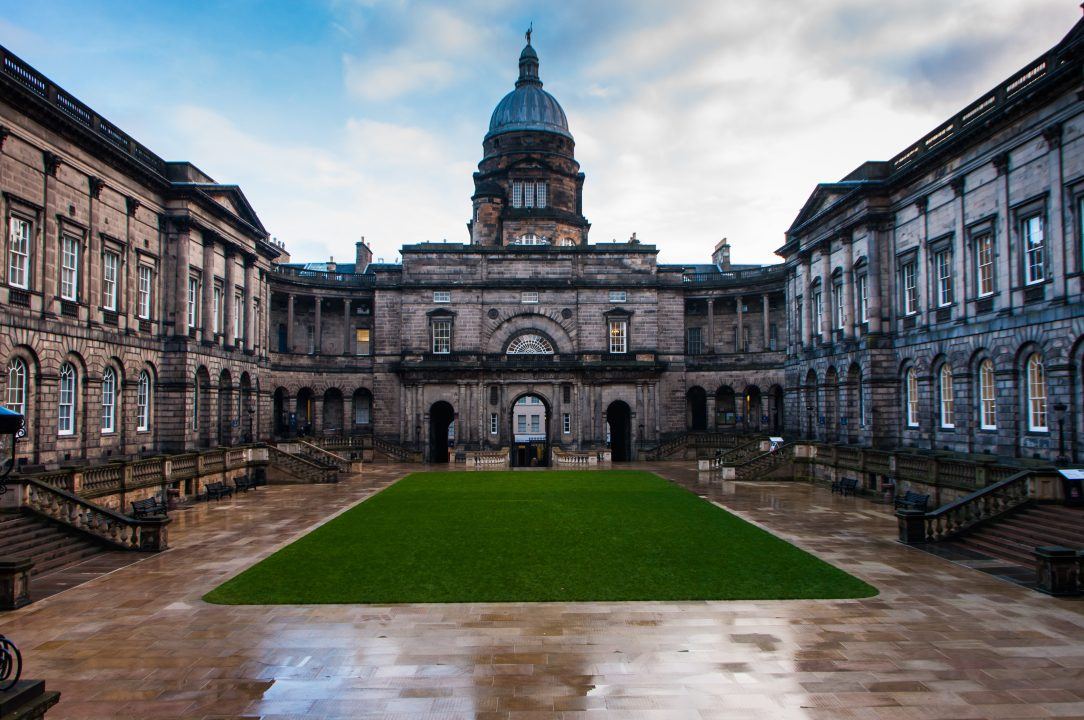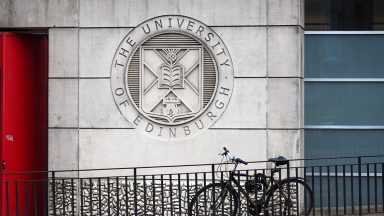Staff at the University of Edinburgh are to strike in an ongoing dispute over budget cuts and job losses.
Members of the University and College Union (UCU) Scotland at the university will take industrial action on Friday June 20, and then for a further five days at the start of the new academic year in September.
The dispute is over senior management’s plans to cut £140m from the university’s budget and the refusal to rule out the use of compulsory redundancies to cut staff numbers.
Staff will also take part in action short of strike, including working to contract, not covering for absent colleagues, and boycotting administrative work related to implementing the cuts.
The union said it was also considering a marking and assessment boycott of students’ work as well as members refusing to use personal devices for work purposes.
However, the UCU said that move is being held back in the hope that the senior management agree to rule out compulsory redundancies and end the dispute.
The strike dates were announced following a ballot of all members of the union, with 84% of members voting to back strike action.
93% of members voted to back action short of strike.
The union said that the cuts would be the largest ever made by a university in Scotland.
Sophia Woodman, UCU Edinburgh university branch president, said: “It’s not too late for the principal of the university to stop this strike.
“Staff want a sustainable future for the university as much as anybody and we want to work with senior management to end this dispute.
“But we’re clear that the use of compulsory redundancies is unacceptable. With the resources and reserves held by the university it can easily afford to rule out sacking staff.
“The decision to let the strike continue, with all the disruption to students that it entails and a possible marking and assessment boycott, is a matter of choice for Peter Mathieson and the university senior management.
“The union’s door is open to talks and I’d appeal to them to heed this final warning, rule out compulsory redundancies and end this unnecessary dispute.”
Edinburgh University’s principal professor Sir Peter Mathieson was called to give evidence at an Education, Children and Young People Committee on Wednesday morning after announcing the cuts in February.
Mathieson previously said that cuts of that magnitude could not be reached solely by voluntary redundancies.
On Wednesday morning, he said the university “hadn’t specifically put any jobs under threat”, but admitted that they are seeking to reduce recurring costs by £140m – £90m of which will come from staffing costs and £50m from non-staff costs.
“The only way to put the University of Edinburgh back onto a sustainable footing is to reduce our recurrent expenditure, and 58% of our recurring expenditure is on staff,” he told the committee.
Mathieson also confirmed that he accepted a 5% pay rise last year, and a 2.5% pay rise in January amidst the Edinburgh University’s growing financial pressures.
Yet he insisted that he did not know the “exact figure” of his annual salary.
Mathieson is often quoted in the media as making around £418,000 a year as the principle of the University of Edinburgh.
However, he told the committee that he “doesn’t scrutinise” his pay slips and “doesn’t know the exact figure”.
“The figure that’s often quoted in the press is something around £400,000 a year,” Mathieson said.
“I don’t think it’s quite as high as that, but I’m certainly very well paid.”
On strike action, he said: “We have been transparent about the savings urgently needed to secure our financial footing, with forecasts showing that we will be in deficit from the next financial year should we not act now.
“Failure to take preventative steps would leave us in an unsustainable situation, requiring deeper savings.
“We respect colleagues’ right to take part in industrial action, and will do all we can to minimise disruption to students should this take place.
“We will also continue to work with our joint trade unions as plans develop to deliver these savings.”
Follow STV News on WhatsApp
Scan the QR code on your mobile device for all the latest news from around the country


 Adobe Stock
Adobe Stock


























